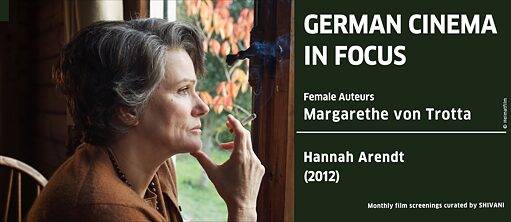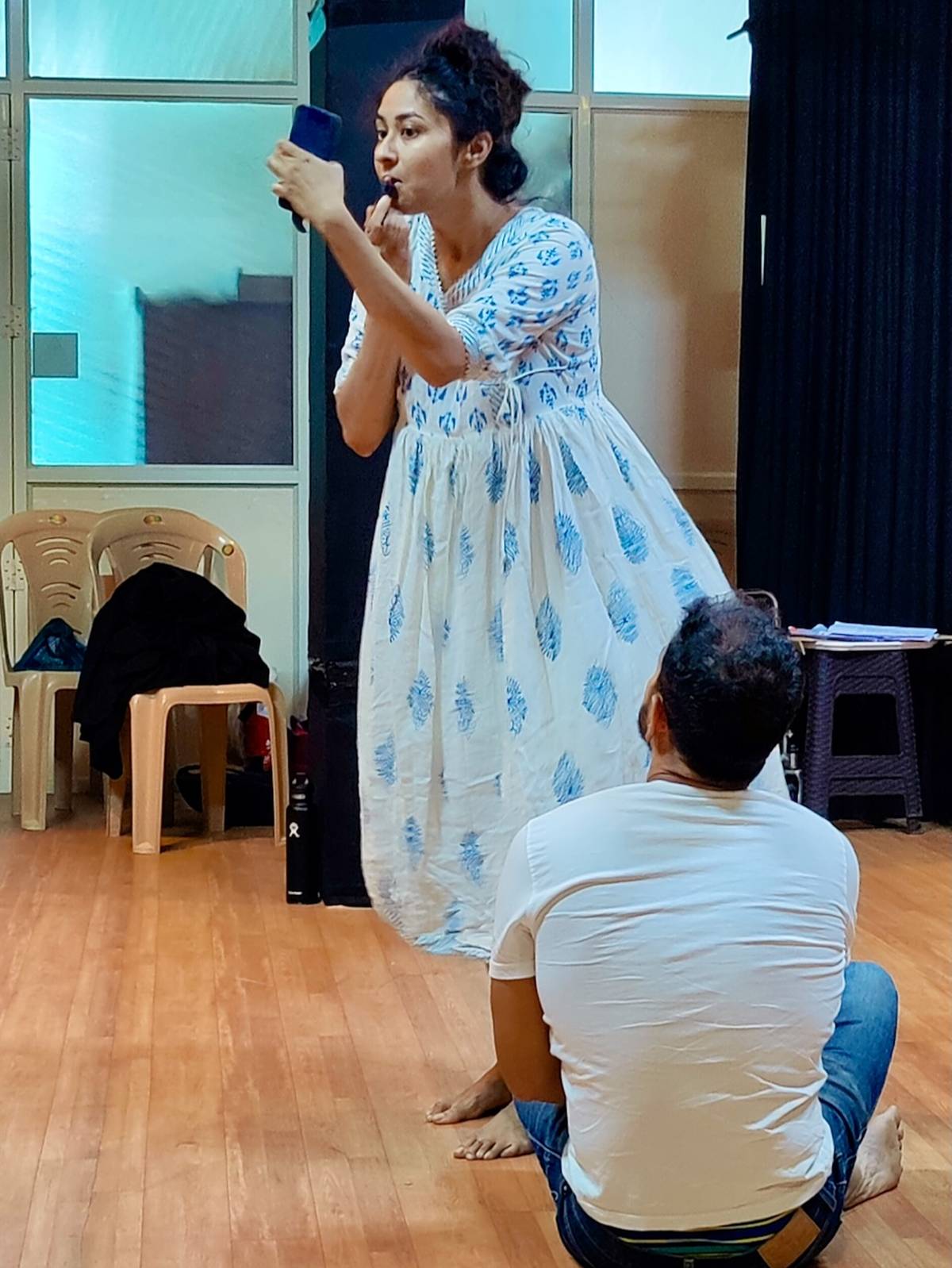Hannah Arendt, directed by Margarethe von Trotta

Details
Apr 20 2024 to Apr 20 2024 6:30 p.m.
EVENT HAS ENDED
Where
Goethe-Institut / Max Mueller Bhavan Bangalore
716, Chinmaya Mission Hospital Road, First Stage, Indiranagar, Bengaluru 560038
Event Description
The next film in our ongoing series German Cinema in Focus, curated by Shivani, is Hannah Arendt, directed by Margarethe von Trotta . This is the third of five films in the sub-section Female Auteurs, spotlighting some of the finest German female directors. In 2013 Margarethe von Trotta focuses on the biography of another woman: “Hannah Arendt” tells the story of the thinker and journalist, who was heavily criticised during her lifetime. She had followed the Eichmann trials in Jerusalem and reported on them. Her thesis on the “Banality of Evil” unleashed a heated controversy about the Holocaust. In von Trotta’s movie the fictional action scenes are augmented by original film clips from the Eichmann trial. Photo (detail): © WDR/Véronique Kolber Hannah Arendt (2012) is a German biographical drama film directed by Margarethe von Trotta.
The film depicts the life and career of the influential German-Jewish political theorist Hannah Arendt, focusing particularly on her coverage of the 1961 trial of Adolf Eichmann, a key figure in the Nazi regime responsible for orchestrating the Holocaust. Arendt's reporting for The New Yorker on the trial led to the coining of the phrase "the banality of evil" to describe Eichmann's seemingly ordinary demeanour and the bureaucratic machinery of the Holocaust. The film explores her idea on totalitarianism, the nature of evil, and the importance of personal accountability through flashbacks. It also explores Arendt’s personal and professional struggles due to her controversial analysis, further depicting an independent thinker who refuses to conform to popular opinion, even when it puts her at odds with her peers and society at large.
Hannah Arendt by Margarethe von Trotta 2012 | col. | 113 min. | German with English subtitles Margarethe von Trotta, Portrait © Manfred Breuersbrock Margarethe von Trotta began her career as a stage actress. She gained international acclaim for her contributions to the German New Wave cinema movement. Her films often centre on complex relationships among women, independent women navigating personal and societal challenges, frequently delving into topics such as feminism, socio-political themes, and political activism, offering nuanced portrayals of female experiences and perspectives. She is recognized for her contributions to European cinema with awards such as the Berlinale Camera and the Venice Golden Lion for Lifetime Achievement Notable films by von Trotta include "The Lost Honour of Katharina Blum" (1975), co-directed with Volker Schlöndorff, which critiques sensationalist media and political manipulation; "Marianne and Juliane" (1981), based on the true story of sisters involved in the West German leftist movement; and "Rosa Luxemburg" (1986), a biographical film about the influential Marxist thinker and activist. Entry free!
